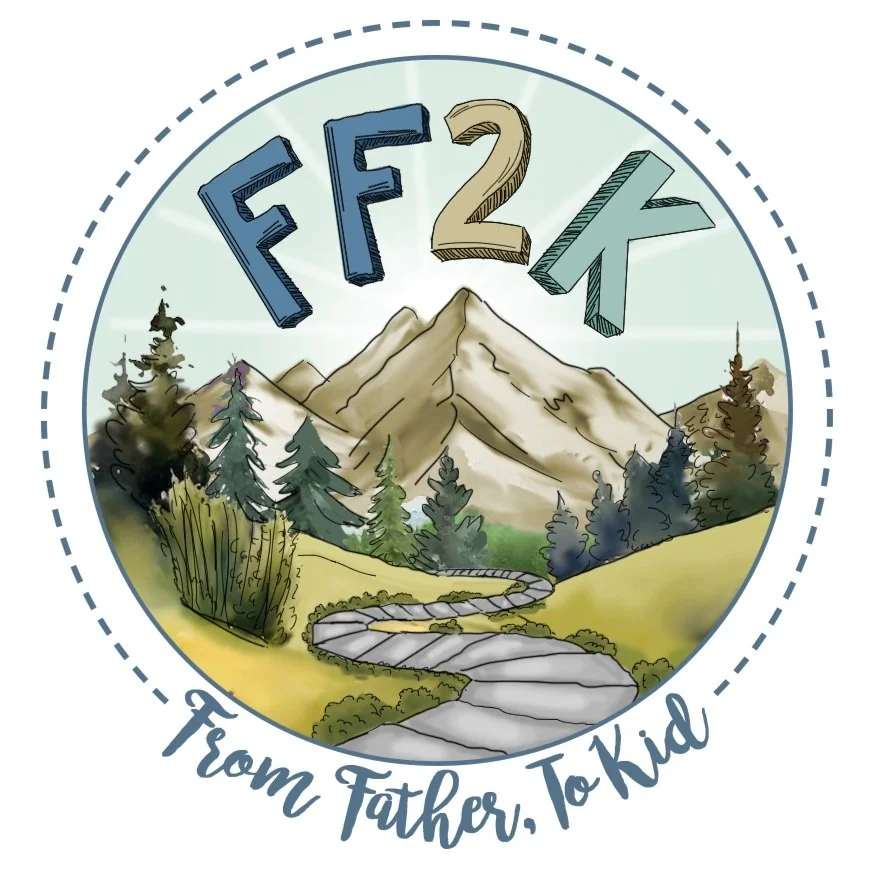The power of perspective
“One moment the world is as it is. The next, it is something entirely different. Something it has never been before.”
Anne RiceOn February 19th, 2016, when you were still seven weeks from being born, I thought was going to die. It was a sensation I had never felt before, and even thinking about it now haunts me.
The sensation was debilitating. Completely overwhelming my body and mind. I could feel my heart beat through every part of my body. Simultaneously crushing my chest inward, while seemingly being ripped out of it. It caused me to be delirious. My mind was in full tailspin, circling uncontrollably.
For someone who has never been afraid of dying, I was beyond terrified. In bed, I lied completely and utterly still to try to calm myself.
Let's rewind to weeks prior, where I had first started feeling "heart palpitations." I didn't really know what they were, but I had been having light chest pains. Mind you, I am not a "healthy person." I am significantly overweight and previously diagnosed with both high blood pressure and high cholesterol. And while the chest pains were concerning, they were often short lived, non-severe, and given everything that was happening in life at the time, they were inconveniently timed. I told myself that there wasn't enough time to worry about this with everything happening at work, trying to prepare for what became a maddening move, and also managing the deceptively ambiguous "parenthood preparation."
Spoiler alert if/when you ever become a parent: preparing for parenthood is like trying to do a "color-by-numbers" piece of art but being told the picture will be completely ruined if you pick the wrong hue of blue. But the instructions just say "blue" and then you are handed the below:
"Blue"
Oh yeah. And you don't even know what you are coloring... and there are a thousand people making a case for each damn crayon. And then you have to do the same thing for every other color. It's so much fun.
Fast-forward back to Friday, February 19th. I walk out of one of the most infuriating meetings of my career, and then the above sensation starts. Yes, this started at work. I knew I was upset, I knew that my heart was racing, I knew I couldn't focus. And while I had never felt heart palpitations of this intensity in the past, it was always short-lived, so I did what any stupid person would do: nothing. It only got worse as the the afternoon turned to evening and only partially subsided about eight hours after that meeting.
The next day, your mom and I started out early, looking for a place to live due to the unexpected move I previously mentioned. And after hours of visiting places and having absolutely no luck, my heart began to race again.
That afternoon we had planned to go to a baby class (all about how to take care of you!). We had a lengthy discussion that it might be best for me to go home and rest given what had happened the day before, but this class was important. We ended up going to the class and when we walked in, the nurse/teacher smiled cheek-to-cheek and said "I'm so glad you guys are here, I know you guys have a lot going on with your move."
Her statement made me pause.
Because while she somehow knew that the timing of the class wasn't as convenient as it seemed when we signed up weeks before, she vocalized our prioritization of why we were there that day.
I replied with appreciation and let her know that despite what was going on with the move (and what she didn't know had happened at work), there was nothing more important than our family and being at that class, learning to be good parents, was the only thing that mattered in that moment.
This might not seem powerful to you. You are probably thinking, "...you didn't already know that?" But the truth is, while I knew it, I had lost sight of it. And until that moment, I was lost in the meaningless and trivial.
But the second my perspective shifted back to what is most important to me in life, my chest pains stopped. It was like someone flipped a switch and everything changed. The stress and anxiety that had plagued me for the previous two days ceased. And to think, all it took was some perspective.
As much as I wish it wouldn't, at some point life is going to get rough. And in those moments, I would implore you seek perspective. Whether it is understanding a new perspective, or in my case, remembering an old one, understanding an experience's relationship to your values and beliefs can completely shift your interpretation of said experience. Seemingly monumental objects can become minuscule and vice versa. Seemingly insurmountable odds can become attainable.
And I'll end this by reminding you that while you might perceive this to be easy and unnecessary, it is entirely too easy to lose your perspective. Because while I was fine by that Saturday night, the following Monday morning I was visiting the emergency room. But that is a story for another day.
